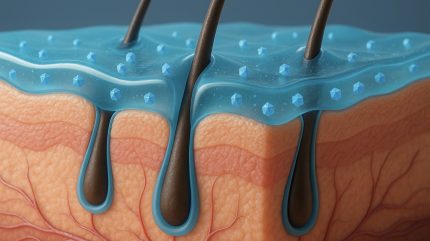
Biotechnology company Eligo Bioscience has obtained a $5m grant from the French Government to expedite the development and upscaling of its topical gene delivery platform.
This platform utilises bacteria that reside on the skin to locally produce therapeutic biologics.

Discover B2B Marketing That Performs
Combine business intelligence and editorial excellence to reach engaged professionals across 36 leading media platforms.
The grant comes after the biotech’s expansion of its Series B funding to $35m and the acquisition of several foundational patents for editing the skin microbiome in situ.
It is part of the “Innovations in Biotherapies and Bioproduction” initiative, under the France 2030 strategy, coordinated by the Health Innovation Agency and operated by Bpifrance on behalf of the government.
This non-dilutive support will be pivotal in advancing the company’s clinical pipeline.
Eligo Bioscience’s clustered regularly interspaced short palindromic repeats (CRISPR)-based topical therapeutic aims to treat moderate to severe acne vulgaris.

US Tariffs are shifting - will you react or anticipate?
Don’t let policy changes catch you off guard. Stay proactive with real-time data and expert analysis.
By GlobalDataBuilding on this therapeutic development, the biotech is currently working on the optimisation and increasing the bioproduction process for its gene delivery vector, in preparation for later-stage clinical trials.
In this regard, the company is collaborating with a contract development and manufacturing organisation (CDMO), Biose Industries, focused on microbial fermentation.
Eligo aims to leverage Biose’s good manufacturing practice (GMP) expertise to scale complex microbial therapeutics. This partnership is expected to be crucial for Eligo’s swift move toward clinical validation.
With the new funding, the company will explore various therapeutic payloads and develop an immuno-dermatology pipeline aimed at chronic inflammatory and immune-mediated skin conditions that currently lack effective treatments.
Eligo Bioscience co-founder and CEO Dr Xavier Duportet said: “This funding empowers us to establish a robust bioproduction process for our first-in-class topical microbiome-targeting gene-editing therapies, laying the groundwork for expanding into a wide range of immuno-dermatological indications.”


